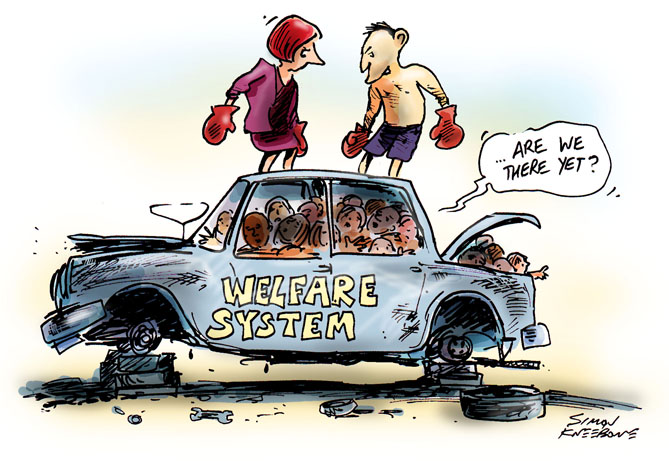Bibek Debroy, in this excerpt from the book ‘After the Welfare State’, talks about the perils of a Welfare State and questions whether it has actually aided the country’s growth and if it is a sustainable model to follow.
What has the socialist State done in India? It has prevented freedom of choice and opportunity. It has created a shortage economy. It is a myth that licensing ended in 1991. 1991 brought an end to licenses for manufacturing.
Licensing and controls continue for assorted services and agriculture. The socialist State prevented competition. This deprived consumers and also made producers inefficient. And in the name of reducing poverty and inequality, the socialist State introduced public expenditure of doubtful efficacy and efficiency. Though the expression “welfare State” is not used all that often in India, when the public expenditure is criticized, there is often a defence in terms of the welfare states in developed countries. People who advance such justifications are rarely aware of what such so-called welfare States do in practice and of the opportunity costs of those expended resources, in terms of what future generations have to pay for that profligate public expenditure.
Access the full document here.
This is an excerpt from the book ‘After Welfare State’
Read more: https://spontaneousorder.in/so-musings-the-limits-of-state-action/

